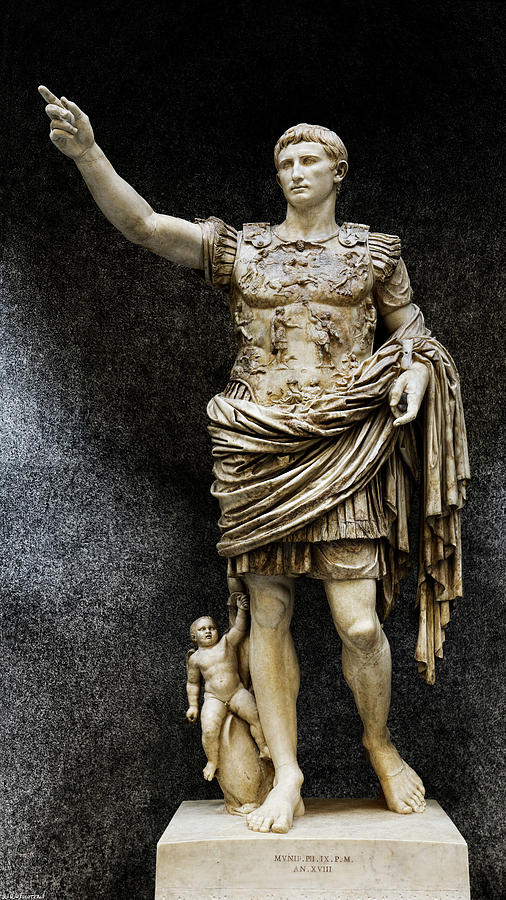
Augustus of Prima Porta Photograph by Weston Westmoreland Fine Art
One of Augustus' most famous portraits is the so-called Augustus of Primaporta of 20 BCE; the sculpture gets its name from the town in Italy where it was found. At first glance this statue might appear to simply resemble a portrait of Augustus as an orator and general, but this sculpture also communicates a good deal about the emperor's power and ideology.
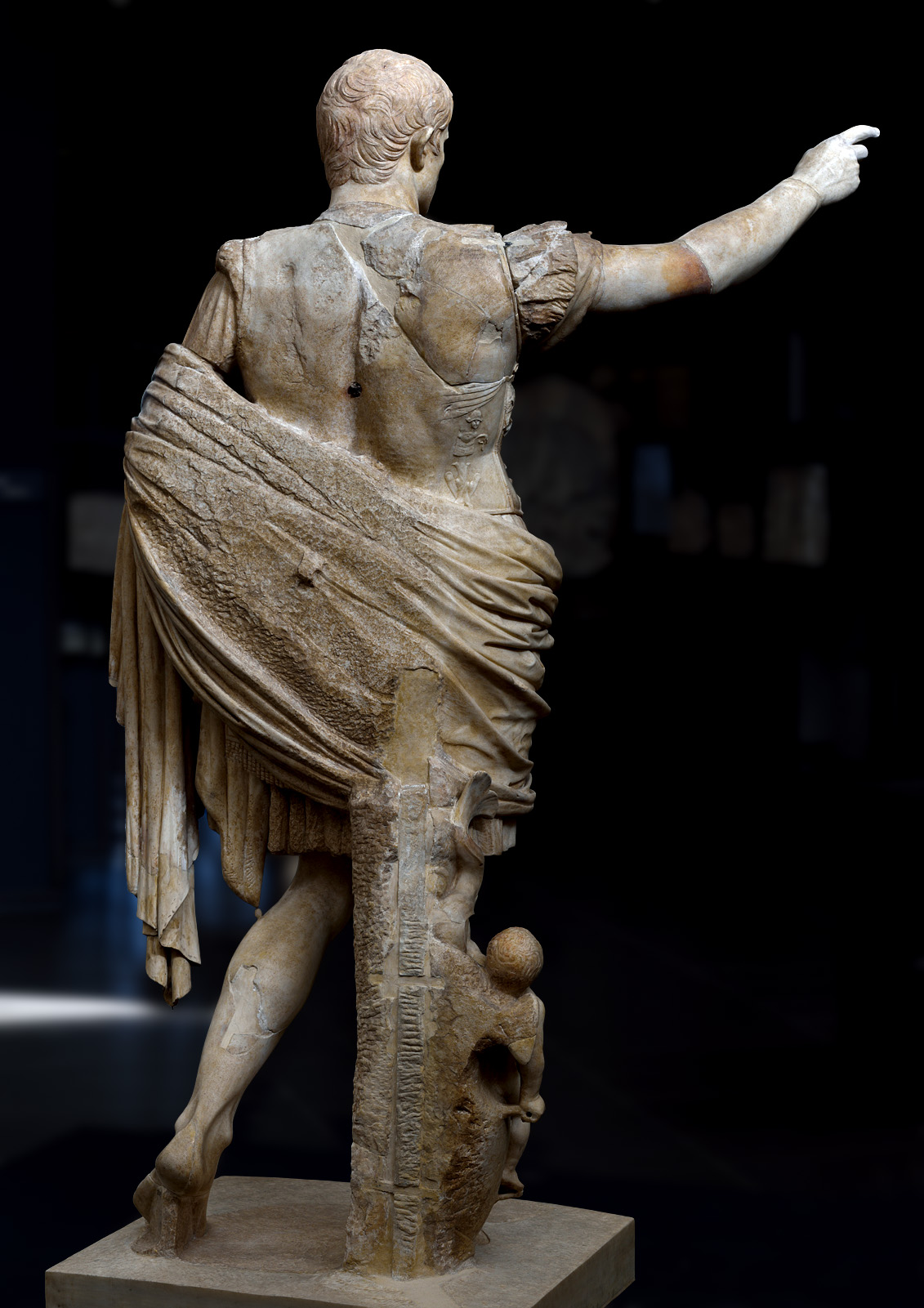
The Trophy on “Augustus of Prima Porta” Alberti’s Window
Augustus of Primaporta. One of Augustus' most famous portraits is the so-called Augustus of Primaporta of 20 B.C.E. (the sculpture gets its name from the town in Italy where it was found in 1863). At first glance this statue might appear to simply resemble a portrait of Augustus as an orator and general, but this sculpture also communicates a good deal about the emperor's power and ideology.

"Augustus of Prima Porta" Sticker for Sale by charlesdal Redbubble
Figure 1. Augustus of Primaporta, first century CE. One of Augustus' most famous portraits is the so-called Augustus of Primaporta of 20 BCE; the sculpture gets its name from the town in Italy where it was found. At first glance this statue might appear to simply resemble a portrait of Augustus as an orator and general, but this sculpture.
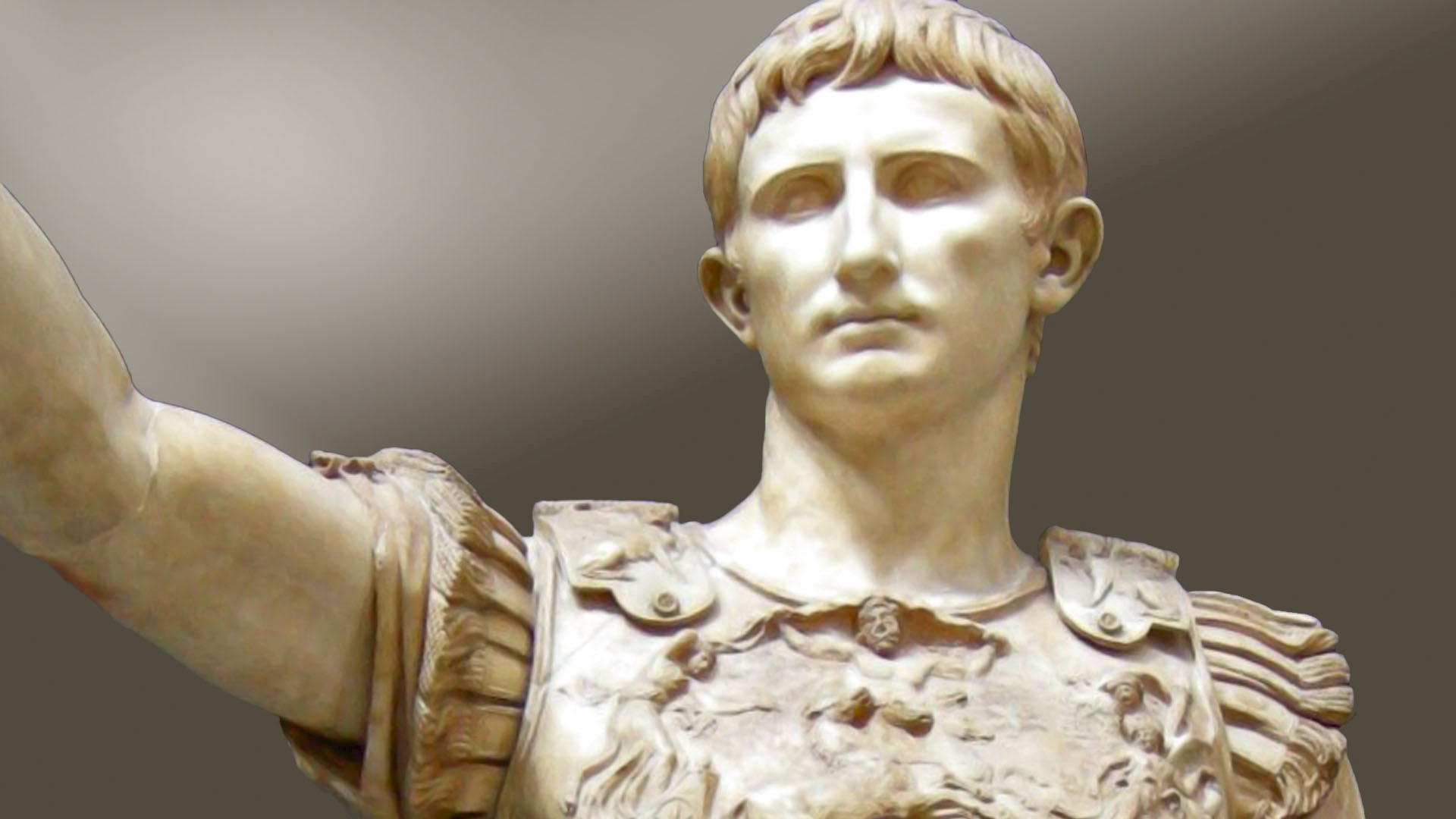
Augustus of Prima Porta Ancient World Magazine
Augustus of Prima Porta; Till Niermann (photographer), CC BY-SA 3.0, via Wikimedia Commons The little Cupid riding a dolphin at his feet is an allusion to Augustus' and his great uncle Julius Caesar's claims that the Julian family was derived from the goddess Venus - a technique of claiming divine heritage without claiming full celestial rank.

a close up of a statue of a man
As I stated earlier, this Augustus of Prima Porta statue is most likely a copy of the original. The original sculpture which was " probably constructed in 20 B.C. to celebrate Augustus' victory over the Parthians" (Karl Galinsky, under Augustan Culture). " The Parthian empire dominated Central Asia and was a formidable power against.

Augustus from Prima Porta
Augustus of Prima Porta One of Augustus' most famous portraits is the so-called Augustus of Primaporta of 20 BCE; the sculpture gets its name from the town in Italy where it was found. At first glance this statue might appear to simply resemble a portrait of Augustus as an orator and general, but this sculpture also communicates a good deal about the emperor's power and ideology.
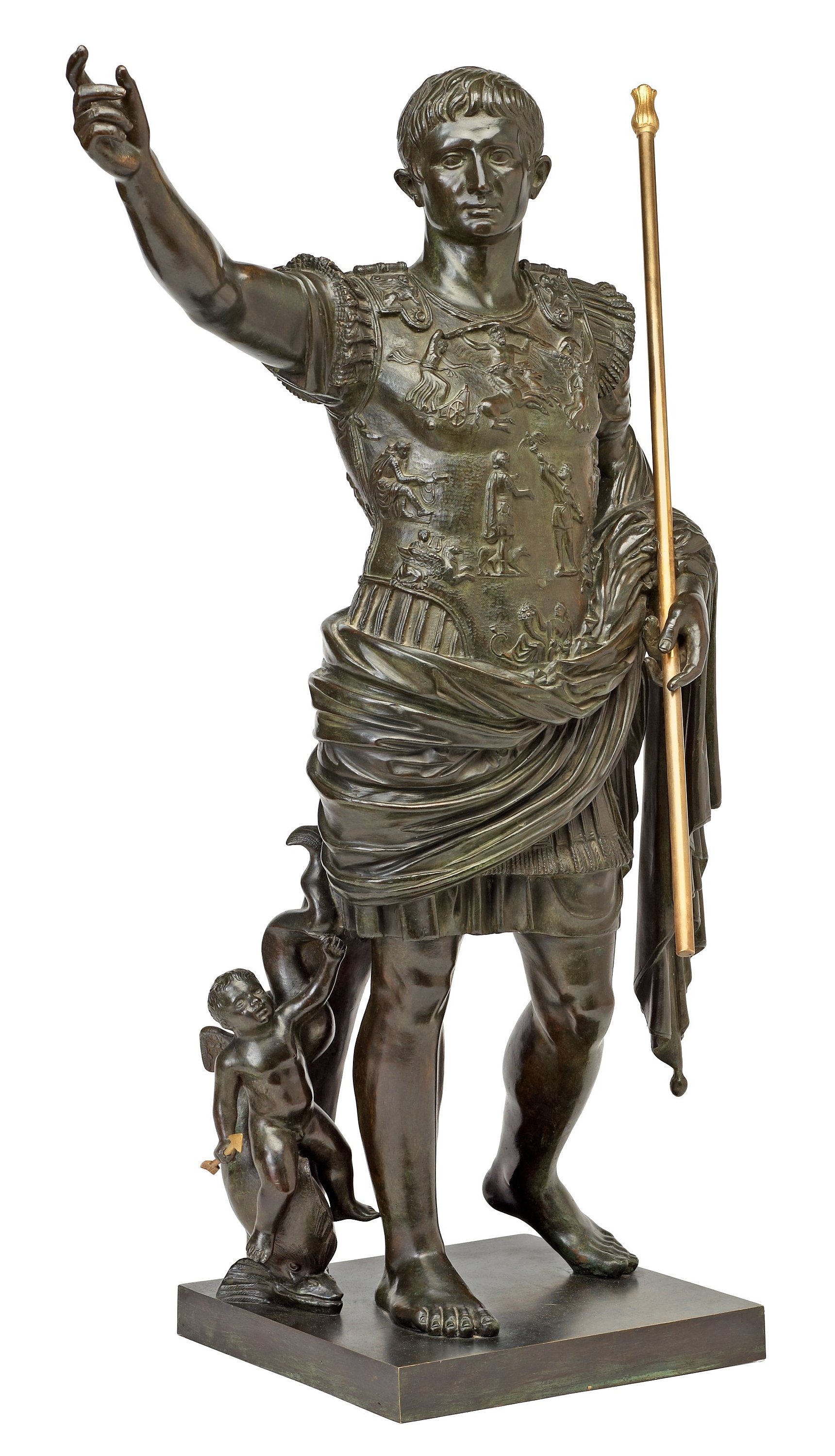
Augustus från Prima Porta. Bukowskis
The Primaporta Augustus set the tone for this new style, triumphant but artificial. The Primaporta statue has the body of the Doryphoros of Polykleitos, the pose of a magnanimous yet authoritative statesman, and the uniform of the military leader, imperator. His breastplate is pure propaganda; it is used as a stage on which victory scenes are.

The Augustus of Prima Porta hubpages
Cupid is the son of Venus, the Roman goddess of love. Julius Caesar, the adoptive father of Augustus, claimed to be descended from Venus and therefore Augustus also shared this connection to the gods. Figure 3. Detail of the breastplate ( Augustus of Primaporta) Finally, Augustus is wearing a cuirass, or breastplate, that is covered with.

Augustus of Prima Porta Joy of Museums Virtual Tours
Prima Porta is the 58th zona of Rome, identified by the initials Z. LVIII.. The famous statue of Augustus from Prima Porta. In 1863-1834, a marble krater carved in refined low relief was discovered at the site and in 1867 one of the most famous marble statue of Augustus,.
Augustus of Prima Porta Archaeology Travel
Augustus from Prima Porta. This statue has been dated to the beginning of the 1 st century A.D. It was found in the ruins of the Villa of Livia, Augustus's wife, at Prima Porta on the via Flaminia. It is a statue of the emperor himself, wearing a highly decorated cuirass and with his cloak ( paludamentum) wrapped around his hips, in the act of.

Grognement Clin dœil Étape importante augustus prima porta statue
Augustus of Prima Porta (Italian: Augusto di Prima Porta) is a full-length portrait statue of Augustus Caesar, the first emperor of the Roman Empire. The statue was discovered on April 20, 1863, during archaeological excavations directed by Giuseppe Gagliardi at the Villa of Livia owned by Augustus' third and final wife, Livia Drusilla in Prima Porta .

Augustus von Prima Porta
The marble statue of Augustus at Prima Porta adopts features from a Greek athletic statue from fifth century B.C., the Doryphoros of Polykleitos; its head, facial construction, leg and overall pose. It was found in the villa of Livia in Prima Porta and was constructed to commemorate the Roman victory over the Parthians in 20 B.C. It gives the.
Posterazzi Bust Of Augustus (Type Augustus Of Prima Porta) Stretched
Augustus of Primaporta. The marble sculpture Augustus Primaporta celebrates Rome's first emperor and his victory over the Parthians. This artwork, found in Livia's estate, showcases a naturalistic, idealized figure of Augustus, borrowing from ancient Greek art. The cuirass displays symbolic imagery, linking Augustus to divine lineage and.

Statue of Augustus from Prima Porta (close up). Rome, Vatican Museums
The Statue of Augustus of Prima Porta . This website gives an introduction to the statue of Augustus at Prima Porta. It includes detailed descriptions, historical context and modern interpretations of the statue in light of Roman and Augustan culture. Click on the links below to learn more about the statue.
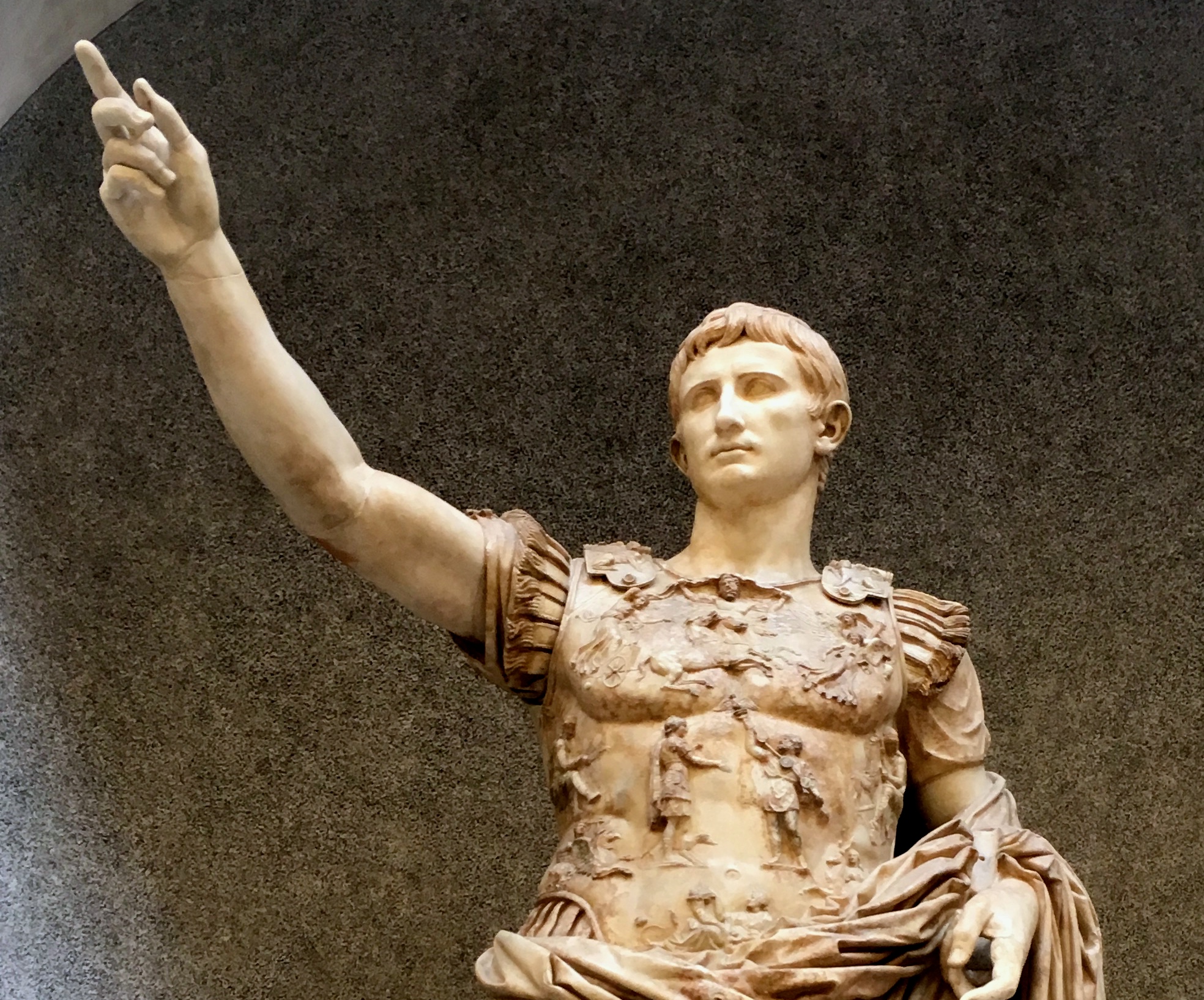
AUGUSTUS FROM PRIMA PORTA (Vatican Museum) CENK ERONAT / Private
The Roman statue known as the "Augustus of Prima Porta" is a remarkably powerful piece of Early Imperial "propaganda". One of the more interesting monuments made during the reign of Rome's first emperor Augustus (r. 27 BC-AD 14) is a statue referred to as the "Augustus of Prima Porta". I still remember the talk that one of my.
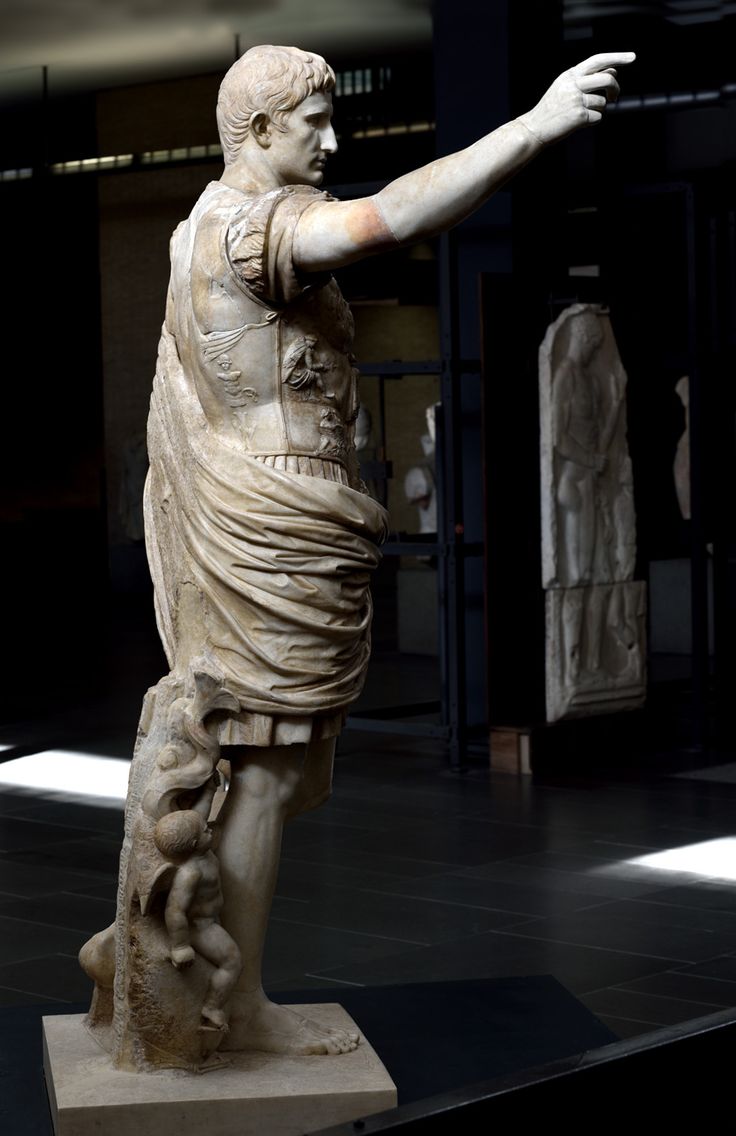
The Trophy on “Augustus of Prima Porta” Alberti’s Window
A topic of fierce debate, the original location and purpose of the statue of Augustus at Prima Porta is far from resolved. Originally uncovered at a villa on the Via Flaminia, typically believed to belong to Livia, though this is not a fact of complete certainty, the original placement of the statue is not recorded7.After its discovery in 18636, the incomplete archaeological journals leave.